Abstract
The water relations and photosynthesis of Agave deserti Engelm., a plant exhibiting Crassulacean acid metabolism, were measured in the Colorado desert. Although no natural stomatal opening of A. deserti occurred in the summer of 1975, it could be induced by watering. The resistance for water vapor diffusion from a leaf (RWV) became less than 20 sec cm−1 when the soil water potential at 10 cm became greater than −3 bars, as would occur after a 7-mm rainfall. As a consequence of its shallow root system (mean depth of 8 cm), A. deserti responded rapidly to the infrequent rains, and the succulent nature of its leaves allowed stomatal opening to continue for up to 8 days after the soil became drier than the plant. When the leaf temperature at night was increased from 5 to 20 C, RWV increased 5-fold, emphasizing the importance of cool nighttime temperatures for gas exchange by this plant. Although most CO2 uptake occurred at night, a secondary light-dependent rise in CO2 influx generally occurred after dawn. The transpiration ratio (mass of water transpired/mass of CO2 fixed) had extremely low values of 18 for a winter day, and approximately 25 for an entire year.
Full text
PDF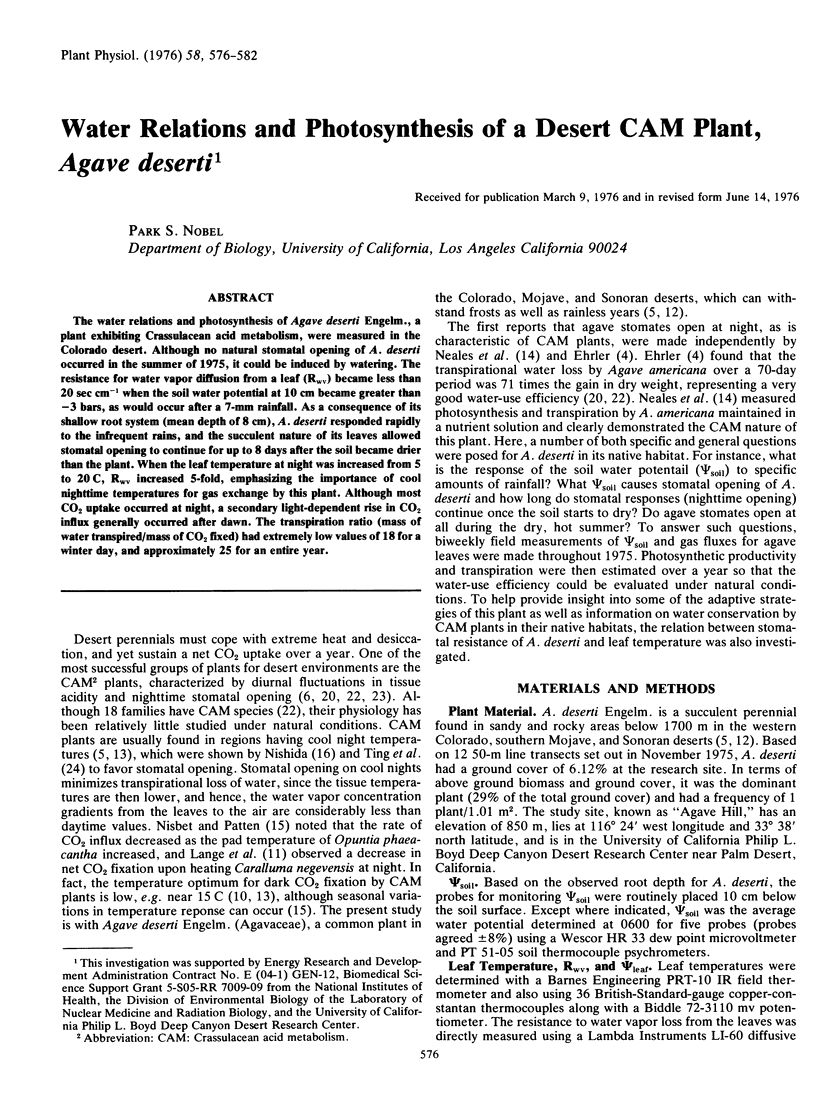
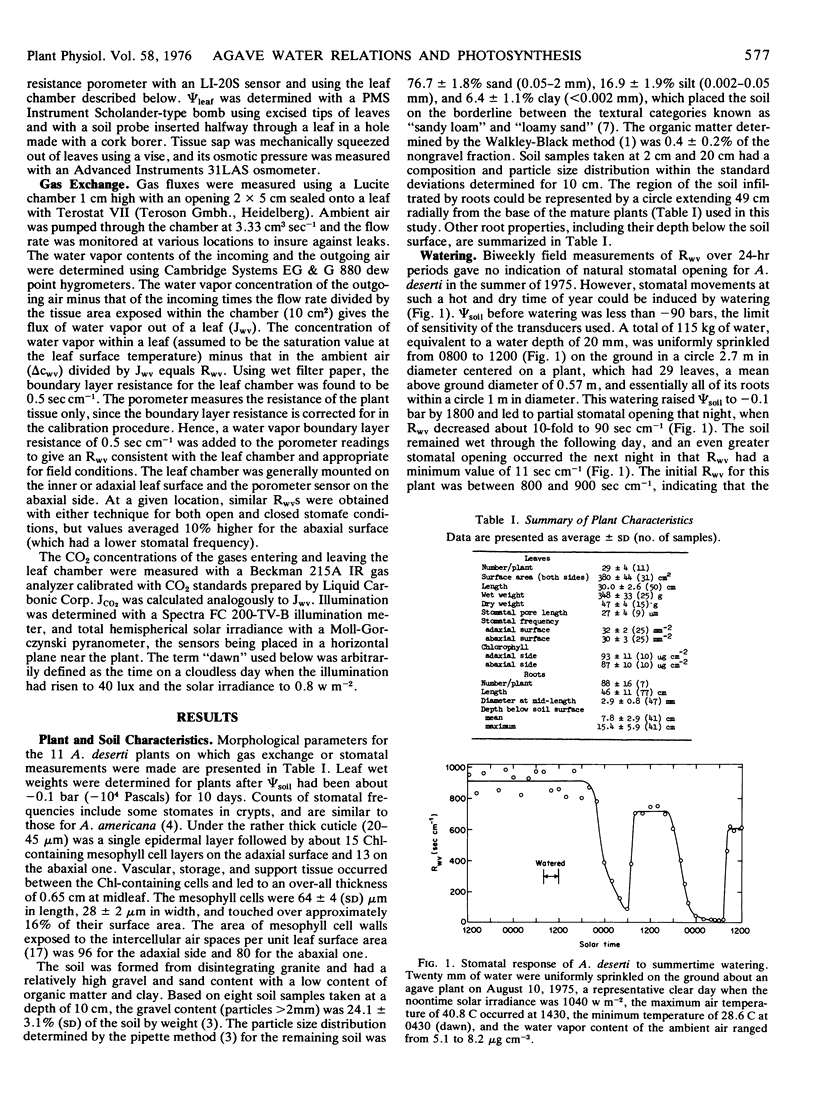
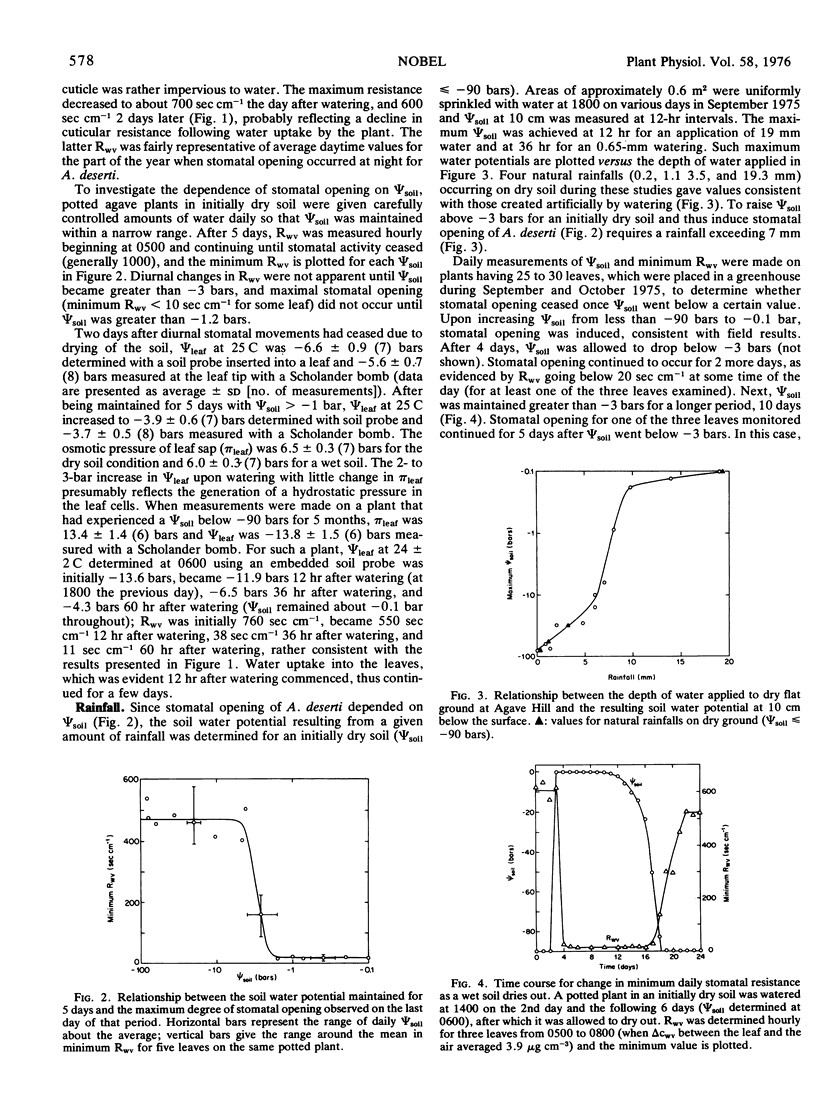
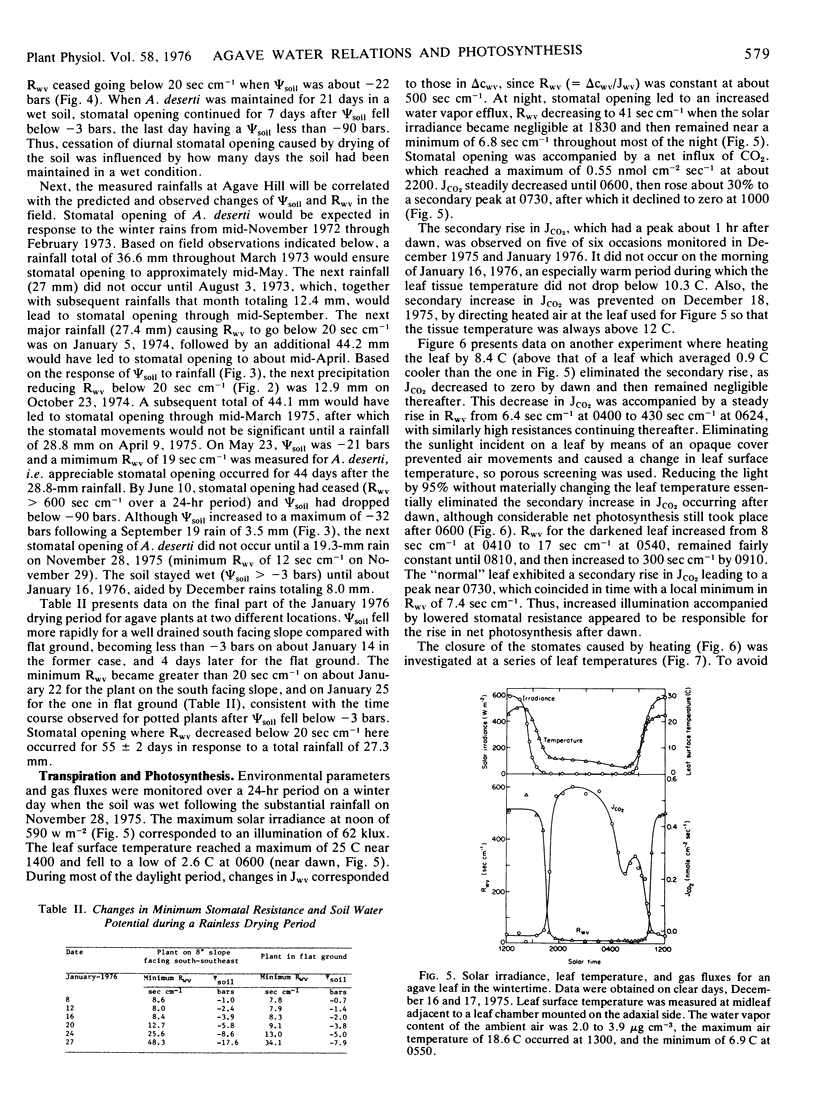
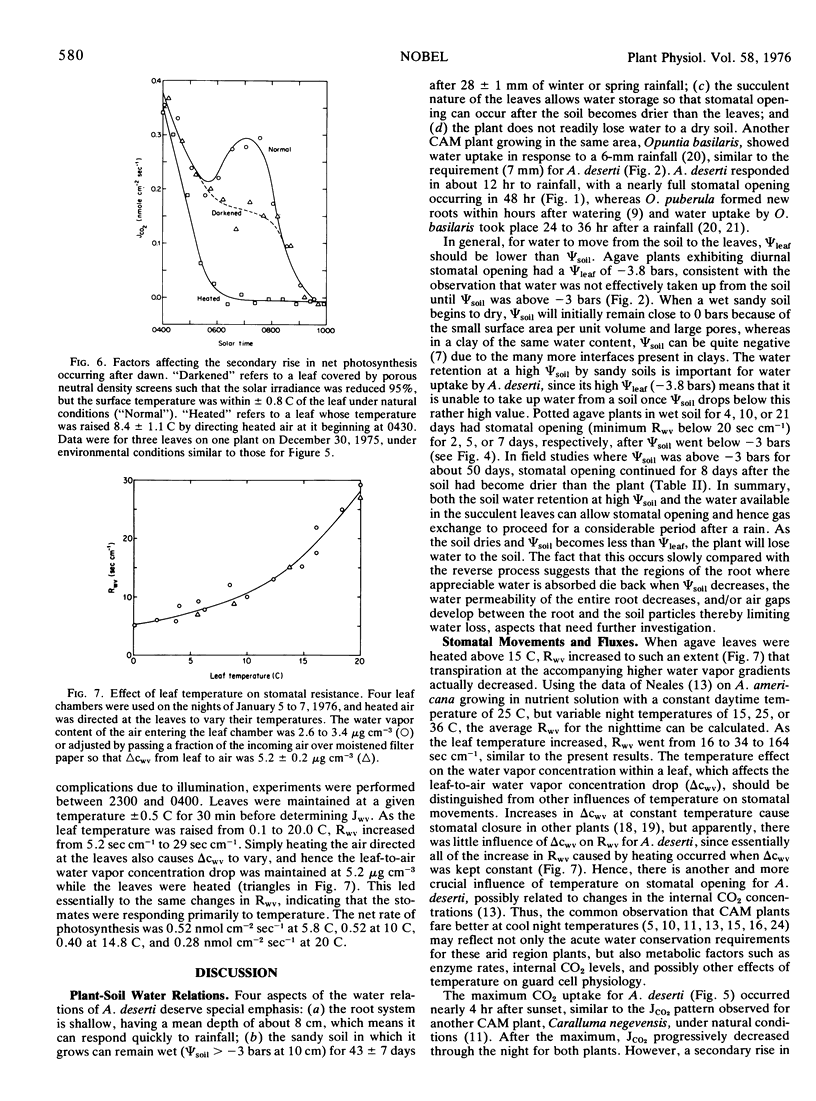
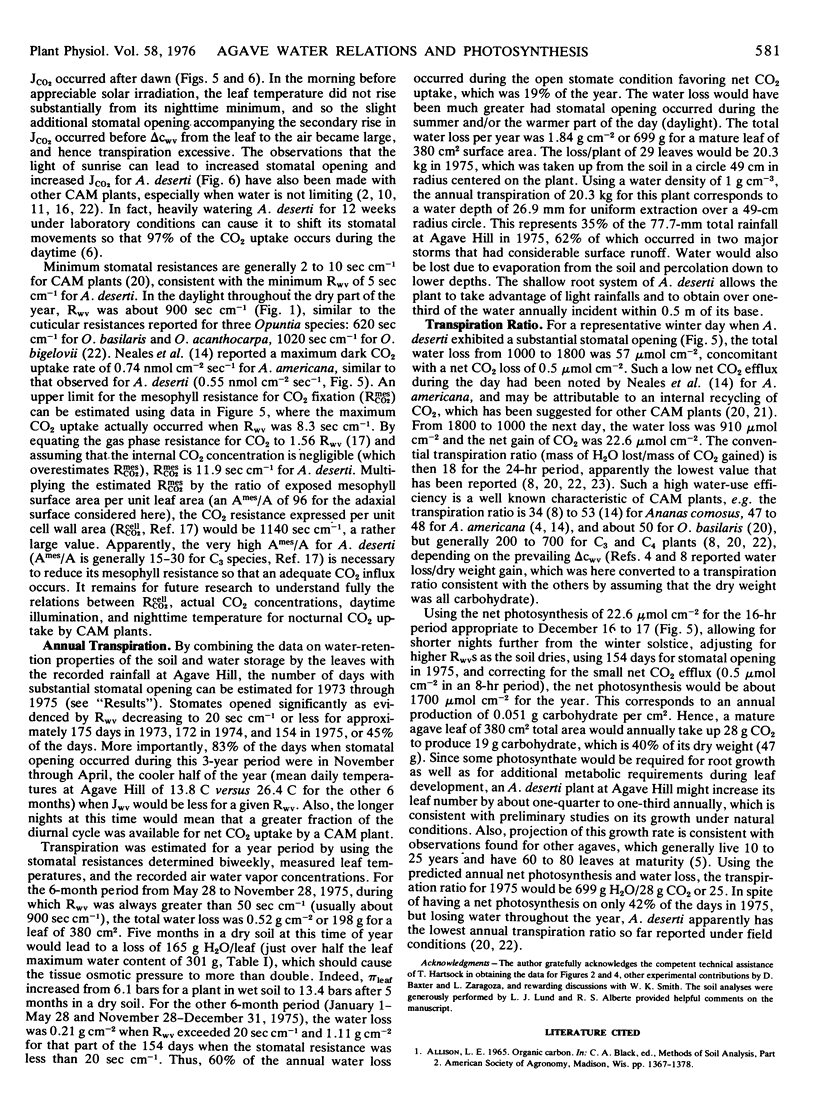
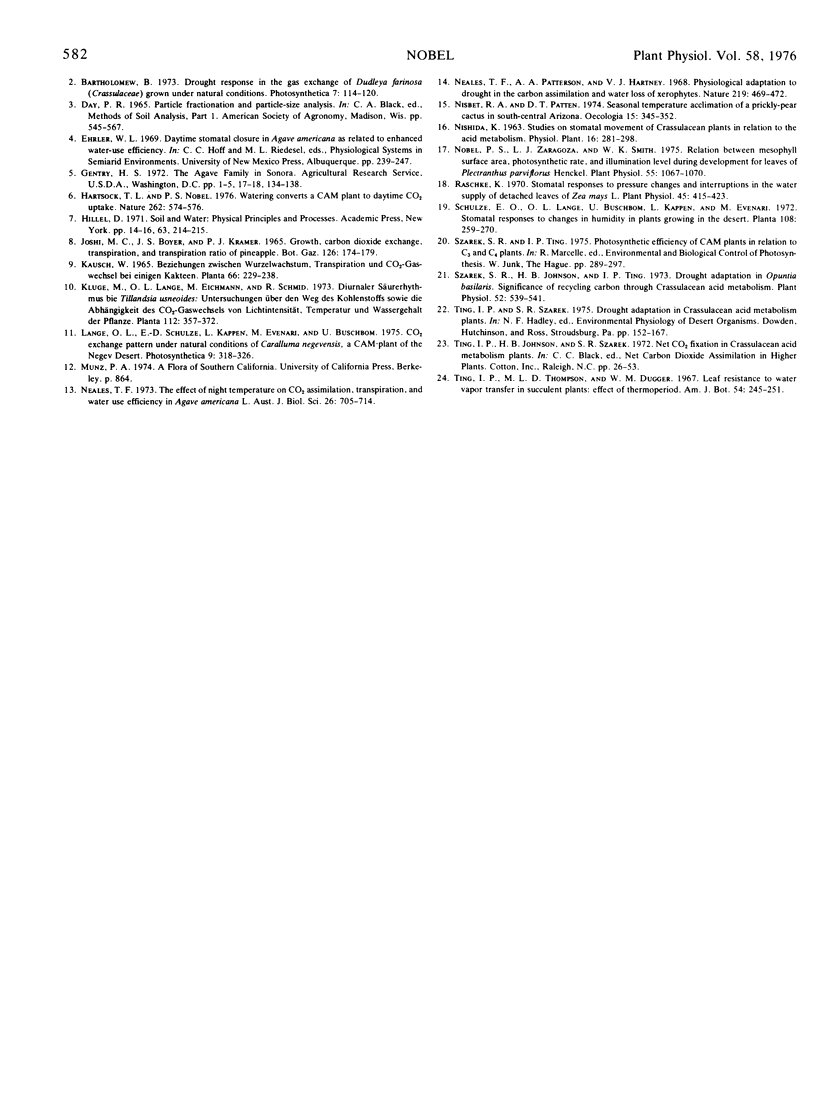
Selected References
These references are in PubMed. This may not be the complete list of references from this article.
- Nobel P. S., Zaragoza L. J., Smith W. K. Relation between Mesophyll Surface Area, Photosynthetic Rate, and Illumination Level during Development for Leaves of Plectranthus parviflorus Henckel. Plant Physiol. 1975 Jun;55(6):1067–1070. doi: 10.1104/pp.55.6.1067. [DOI] [PMC free article] [PubMed] [Google Scholar]
- Raschke K. Stomatal Responses to Pressure Changes and Interruptions in the Water Supply of Detached Leaves of Zea mays L. Plant Physiol. 1970 Apr;45(4):415–423. doi: 10.1104/pp.45.4.415. [DOI] [PMC free article] [PubMed] [Google Scholar]
- Szarek S. R., Johnson H. B., Ting I. P. Drought Adaptation in Opuntia basilaris: Significance of Recycling Carbon through Crassulacean Acid Metabolism. Plant Physiol. 1973 Dec;52(6):539–541. doi: 10.1104/pp.52.6.539. [DOI] [PMC free article] [PubMed] [Google Scholar]


